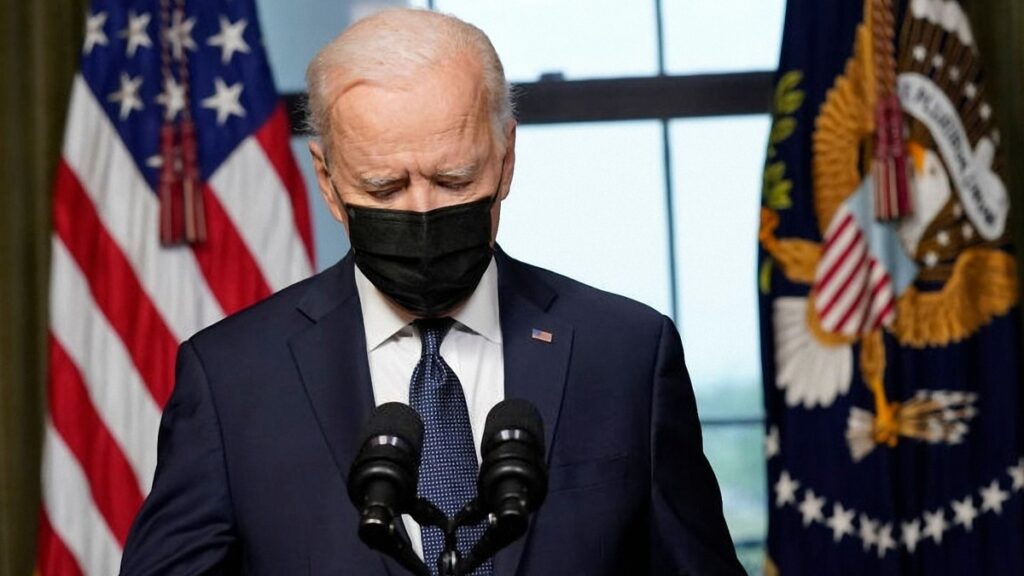
President Joe Biden signed on Monday a $1 trillion infrastructure bill to reconstruct the country’s foundation from roads, electricity and expanding access to broadband internet.
The President’s latest legislation will be the heftiest federal funding for infrastructural framework in more than a decade. The program incorporates a $65 million funding to enhance broadband accessibility to fulfill global connectivity by the end of 2029.
“The bill I am about to sign is proof that despite the cynics, Democrats and Republicans can come together and deliver results,” The President stated during the ceremony at the White House.
High-level lawmakers, state,and local officials attended the legislative ceremony to mark the valuable bipartisan policy.
The federal investment will also reach various sectors in the future, with approximately $2 trillion funding to be directed at healthcare, education, and climate change package. This will be the Biden Administration’s next legislative project on the agenda and is still being examined by the Democratic party in Congress.
Democratic leaders disclosed that are anticipating a vote this week, then to be sent to the Senate, where it could be altered.
The legislative bill signifies the President’s latest triumphant stance from a political aspect, as the country faces some of its heaviest inflations in its past three decades.
U.S. Congress passed Friday the $1.2 trillion bipartisan infrastructure bill, marking a substantial stride towards endorsing robust economic plans to be applied by the Treasury Department on cryptocurrency miners.
In August, the Senate finalized a hefty package that would flow heavy investments into developing the country’s roads and bridges. The package will incorporate massive funding to enhance a multitude of physical foundations in the U.S.
Not only will it address foundational aspects of the country, but it will also connect each household with high-speed internet in the upcoming ten years with a $65 billion budget.
While the bipartisan infrastructure bill will mostly aim at foundational purposes, it will also address the endlessly expanding cryptocurrency market.
The purpose is to impose harsh tax requirements for digital wallet creators and miners, unearthing a regulatory peril on the cryptocurrency market.

Now, the act has been legislated by the House of Representatives and sent to President Joe Biden. The Infrastructure Investment and Jobs Act demand brokers to account for trader information on transactions exceeding $10,000 to the IRS.
Obtaining a total of 206 votes out of 228, with 13 republican supporters and six Democrats opposers, once the President signs the Act, it will be legislated.
For the cryptocurrency community, the bipartisan infrastructure bill will not address structural framework aspects but rather impose “tax requirements” on brokers.
In parallel, the soon to be legislated Act will develop the term broker to incorporate any individual accountable for “effectuating transfers of digital assets on behalf of another person.”
For example, the cryptocurrency exchange platform, Coinbase, is already structured to accommodate legal demands regarding gathering information and delivering transaction reports to the IRS.
However, in a case where an individual transfers their digital assets between brokers, using a digital wallet, or Defi platforms for lending or exchange, such platforms do not typically gather data or even authenticate users’ identities.
So, naturally, the responsibility to be held on these crypto platforms will fall on the shoulders of taxpayers to deliver capital gains or losses reports.

While the majority of Congress advocated the act, industry entities, such as the Chamber of Digital Commerce and Coin Center, expressed their worries that the bill’s approach might be perceived as “too broad and too vague.”
On the other hand, various cryptocurrency-supporting Senators, such as Senator Ron Wyden (D-OR) and Cynthia Lummis (R-WY), tried to alleviate the situation during the Summer. This came prior to the Senate’s legislative passage by joining forces with Senate Pat Toomey (R-PA), for an alteration to the bill that would specify brokers’ role in a legislative act.
However, the amendment was later rejected by Senator Richard Shelby (R-AL), who has previously chaired the Senate Banking Committee, opposed to the unanimous vote for approval in August.
“Cryptocurrency tax reporting is important, but it must be done correctly,” lawmakers wrote in a letter in August, after the bipartisan Blockchain Caucus dispatched a letter to each House lawmaker in a call to assist in fixing “crypto pay-for.”
“When the infrastructure Investment and Jobs Act comes to the House, we must prioritize amending the language to clearly exempt noncustodial blockchain intermediaries and ensure that civil liberties are protected,” the letter added.
Once the President’s signature reached the bipartisan infrastructure package bill, the Treasury Department will solemnly have full authority in specifying which companies will be considered brokers. According to CNBC, a treasury official disclosed that the bill will neither be aimed at miners nor hardware developers. Yet, this does not mean that in the near or far future, new administrations will not pursue them.